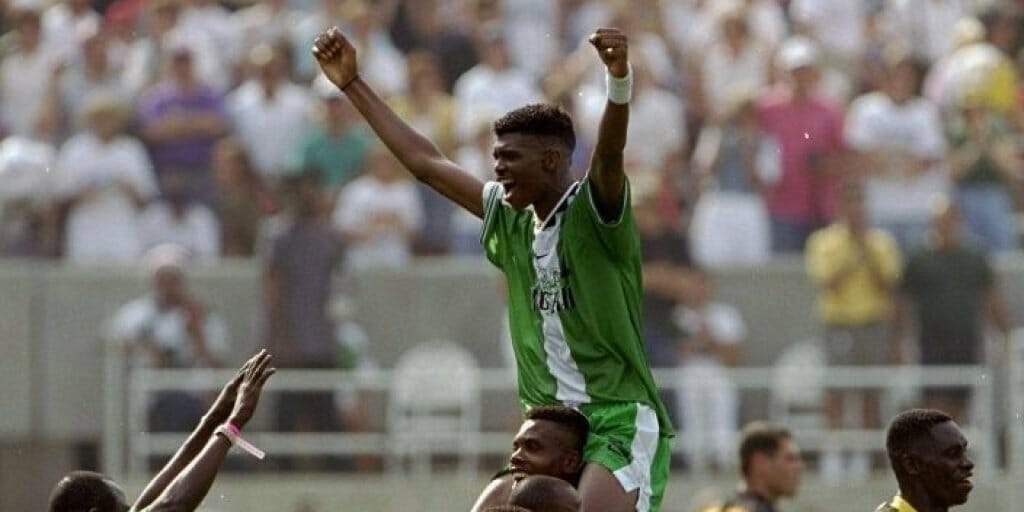For Nigerians, 1996 remains a cultural memory as it was the year that their national soccer team – the Super Eagles, stunned the world by becoming global icons in the Summer Olympics. 25 years later, it’s clear that the Nigerian team had a significant impact on the soccer world, stretching far beyond their borders.
The Nigerian Dream Team managed to cement their position as a soccer nation worth considerable respect by opponents beyond the African continent. Additionally, Nigeria’s path to their first Olympic gold medal in soccer involved defeating the world’s best soccer teams like Brazil. That was a feat that fans and players recall as a win for Nigerians and the African content as a whole.
While the Nigerians didn’t play soccer in Tokyo this year, the Olympics remain meaningful to fans in this west African nation. Many followed the soccer tournament from home and used their bet9ja account to wager on the matches while reminiscing about the tournament that forever changed the face of African soccer.
Before the 1996 Olympics, Nigeria was making inroads in the sport, winning regional competitions on the continent since 1980. The country had already lifted the African Cup of Nations two years earlier in Tunisia, lifting the trophy for their second time. The West African nation also left a great impression during the 1994 World Cup hosted in the U.S and has the record for the highest attendance of FIFA tournaments in history.
During the 1994 World Cup tournament, the Super Eagles lost in the round of 16, after Italian Roberto Baggio scored a penalty in extra time. However, if they had managed to win, they’d have become the second African team to reach the quarterfinals after Cameroon in 1994. Unfortunately, that didn’t materialize.
By 1996, Nigeria’s hopes to become a powerful soccer nation seemed to be diminished by political realities, as the country was under the brutal military government led by General Shani Abacha. The team was also affected by the lack of organization from the Nigerian Football Federation, known as the National Football Association at the time. Additionally, there was the pervasive national issue of tribalism in the team.
Half a year before the Olympics, Abacha ordered the team to withdraw from the AFCON tournament hosted in South Africa. That’s because Abacha feared for the safety of his men due to diplomatic tensions between the two countries. This decision was disheartening to the team, and many players saw it as a waste of opportunity as they couldn’t defend their title.
Despite the heartbreaking decisions a few months earlier, the Nigerians went to Atlanta in July ready to showcase what the world missed at the AFCON tournament. However, they had to overcome a list of hurdles brought by the NFA, including players pay and benefits, interference picking players due to tribalism and inadequate provisions during preparations.
Due to all the team’s hardships, the Super Eagles arrived in Atlanta with modest hopes of winning any medals, even after beating Hungary in their first game. Nigeria was in Group D together with Hungary, Japan and Brazil, defeating all the teams except the Brazilians, the tournament favorites. However, they beat Brazil in the semi-finals before defeating Argentina in the finals to claim the gold medal.

